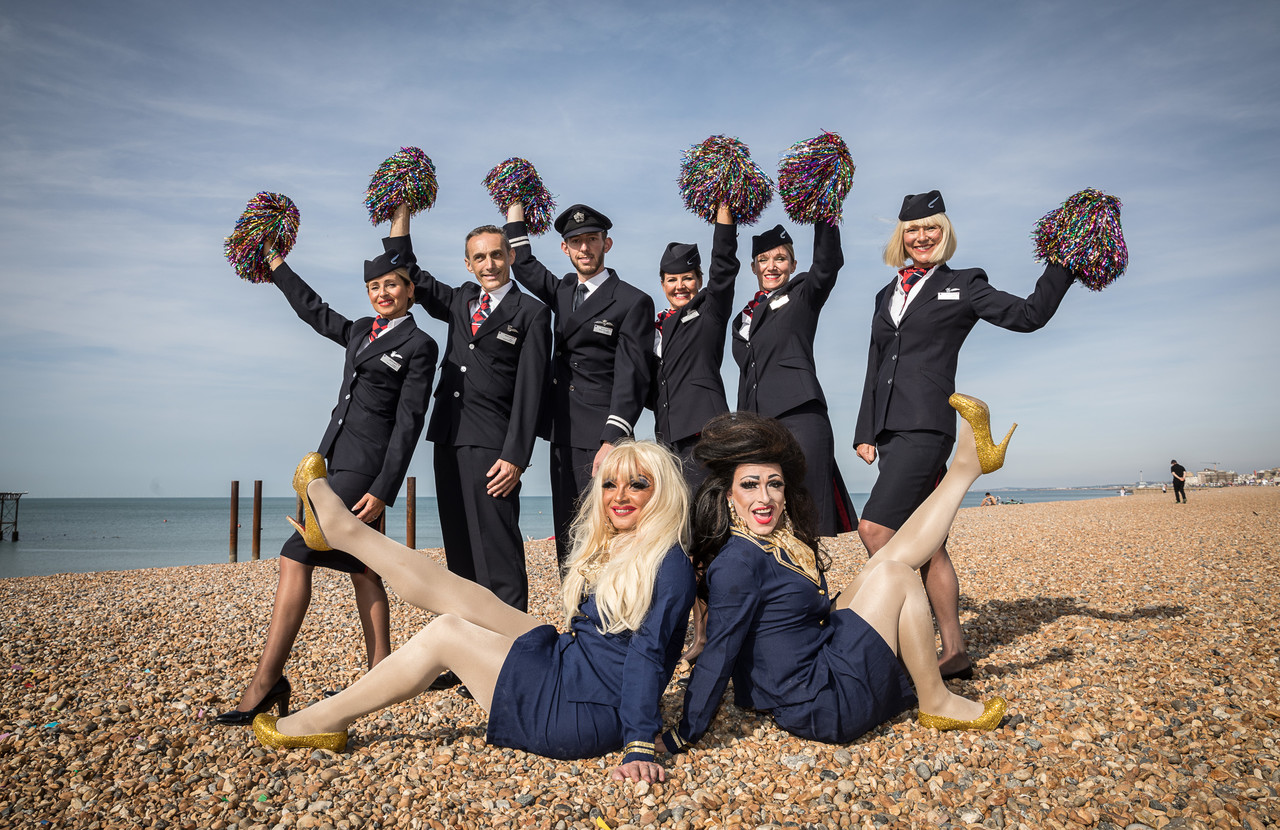
A couple of days ago, an ex-British Airways customer services rep appeared in the popular British tabloid newspaper, the Daily Mail. Sid Ouared told the paper he had been sacked from his check-in job at BA’s hub at Terminal 5, Heathrow Airport because of the way he chose to wear his hair – a decision that he said was sexist.
According to Ouared, managers at the airline said that his “man bun” hairstyle breached BA’s strict uniform standards. He would have to have his hair cut short or wear it under a turban or as Rastafarian dreadlocks in order to comply with the policy, he said.
The 26-year check-in agent had only been in his role for two-weeks before things came to a head. Ouared even alleges that one manager said to him: “You hair is like a girls hair”. After an extensive recruitment and training process, Ouared was dismissed from his role.
Describing British Airways as being stuck in the 1970’s, Ouared said he was the victim of sex discrimination – given the fact that women are allowed to wear their hair in the exact same way that he chose to wear his hair. An employment law expert, quoted by the Daily Mail seemed to be in agreement.
The issue, however, has really divided opinion. Some commentators simply didn’t like Ouared’s hairstyle – which is a perfectly reasonable opinion (after all, a man bun is so 2017) but that hardly counts as reason enough to dismiss someone.

Other’s have pointed out that Ouared accepted the job, knowing full well what BA’s uniform standards were. If British Airways says male employees should have short hair, then it’s quite right that Ouared should be let go.
For its part, British Airways has said that it won’t comment on individual employment cases – so we don’t know whether Ouared’s hairstyle was the reason for his dismissal or whether there were other reasons that haven’t been reported.
The funny thing is, though, that the story broke just one day after British Airways had been celebrating its participation in the UK’s largest LGBTQ Pride event in Brighton, about an hour south of London. The airline said over 100 of its workers took part in the event – “flying the flag for modern Britain”.
And while Ouared’s case doesn’t involve LGBTQ rights, it’s interesting that Angela Williams, who is BA’s head of human resources said: “Diversity and inclusion is key to delivering a better service for our customers, and to enable an open and welcoming culture for all our colleagues.”
Unless, of course, you choose to wear your hair in a way that doesn’t conform to BA’s narrow (and some might argue, old-fashioned) view of what is acceptable for men – despite it being a perfectly acceptable hairstyle for women.
The question is – would British Airways dismiss a female employee who chose a short, cropped hairstyle? There would undoubtedly be completely justifiable outrage. Uniform standards are important but rules have to be applied equally and with good reason.
We’ve spoken to our sources at the airline who were slightly amazed at this story – after all, they say the airline recently changed it’s uniform policy so that both men and women can choose to wear makeup.
This incident really goes beyond personal taste or fashion. It’s an issue of equality and we can’t help but feel that British Airways has really missed the mark.
Not that this incident is the first time that British Airways has come in for criticism over its uniform policy. Until recently, the airline forced new female cabin crew to wear a skirt – that policy has now been changed although crew still need to “request” the option to wear trousers from their manager.
Mateusz Maszczynski honed his skills as an international flight attendant at the most prominent airline in the Middle East and has been flying throughout the COVID-19 pandemic for a well-known European airline. Matt is passionate about the aviation industry and has become an expert in passenger experience and human-centric stories. Always keeping an ear close to the ground, Matt's industry insights, analysis and news coverage is frequently relied upon by some of the biggest names in journalism.









